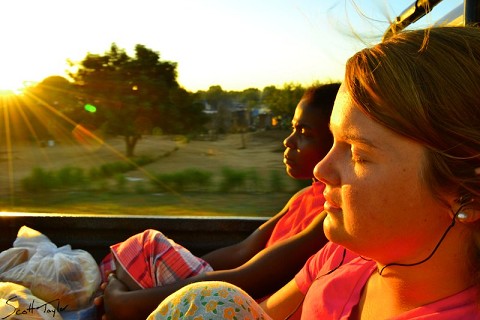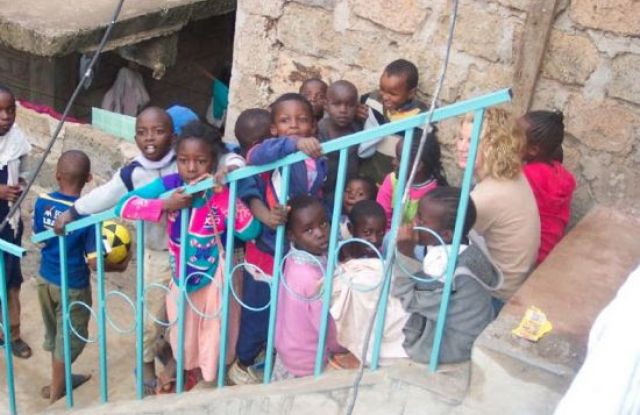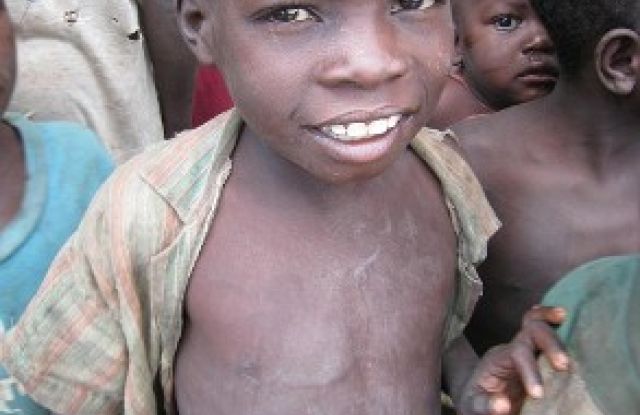Did you ever stop to consider why Jesus called the poor blessed? It could be for a variety of reasons, but I’d like to suggest that one is that poverty is under-appreciated.
We typically only see the downside of poverty, but it has a big upside too.
When you’re poor, you know th…
By Seth Barnes
 Did you ever stop to consider why Jesus called the poor blessed? It could be for a variety of reasons, but I’d like to suggest that one is that poverty is under-appreciated.
Did you ever stop to consider why Jesus called the poor blessed? It could be for a variety of reasons, but I’d like to suggest that one is that poverty is under-appreciated. We typically only see the downside of poverty, but it has a big upside too.
- When you’re poor, you know the value of things.
- When you’re poor, you are forced to depend on God for what you lack.
- When you’re poor, you can more easily become unified as the body of Christ.
- When you’re poor, you don’t have to battle materialism as much.
- When you’re poor, Jesus has compassion on you and comes to your aid.
Many people in the Bible struggled a lot more when they were rich than when they were poor. For example, Israel’s kings were generally an inept lot; they needed more poverty.
Why do you suppose Paul struggled to do the things he wanted to do? He was a leader who had it all – his learned self-sufficiency worked against him.
The easy answer we learned in Sunday School is, “Sin.” But drill a little deeper and you see that maybe what he needed was more poverty.
I’ve been rich and I’ve been poor, and I have to tell you, I prefer rich. I have a hard time saying “thank you” for my poverty. Yet I need it.
What about you, have you ever been equipped with poverty? Have you seen it’s benefits? What were they?




¢¾ ahhhh…. one of my favorite topics. I have been severely poor but I have never been rich… though for the first time in my life, all my bills are paid and I have extra money in the bank. It feels good. It feels really good.
I know in part it is because now I take care of the poor that I once was. God promises that He is the one who repays us when we do that. But I don’t do it for payment. I do it for the very reasons you stated above.It keeps me in balance with a clear perspective of where God has brought me from… and how quickly and easy it is to become poor again.
Remaining in the poor is teaching me how to love (instead of hoarding) better. I have such a loose hand on material items. I absolutely cannot resist it when they ask me for something that I have on my back. Jesus says to give him my shirt and my cloak. Reluctantly sometimes, I still obey.
Thank you LORD for both sides of life’s lessons!
“…give me neither poverty nor riches, but give me only my daily bread. Otherwise, I may have too much and disown you and say, “Who is the Lord?” Or I may become poor and steal, and so dishonor the name of thy Lord.” = Proverbs 30:8,9
I LOVE this verse, because the author is VERY in touch with his flesh. He knows becoming rich will lead to a path of little, or NO dependence on God. Yet he understands the other extreme as well.
Bottom line is this, man ain’t very good at depending on God INTENTIONALLY – usually it’s hard life circumstances that lead to such dependence.
I also would say that I was more content overseas with little, than I have ever been in the states with lots or with little.
I once heard it said that exposure is what fuels greed and materialism. I think that is really the issue.
When I was around poverty, I was content because everybody had little, and there wasn’t much around to be had. But as soon as we got in an area with “western” conveniences and “stuff”, I wanted it or even felt entitled to it.
When I first got home, I was disgusted with all of the “stuff”, and easily got rid of a lot of it. However, the more I was exposed again to the abundance of stuff here, the more I desired or demanded it.
The driving force behind out capitalism is exposure – AKA advertising. Show people it exists, and suddenly they are intrigued and want it. If we didn’t know it existed, we could care less about having it.
I think some of the answer to living in a western culture and not getting caught up in all of the “stuff”, is to limit out exposure. I’ve learned that walking around the mall is not the best way to use my down time. I’ve also learned that subscribing to catalogues or even most magazines is not beneficial. If I look at them, I inevitably find something that I want. Even watching commercials and especially the home shopping network… are not a good idea.
If we really do need something, it is very easy these days to find options. We don’t really need to have them blasted at us all day long.
This article is a little surprising to read, because we so often focus on what it will take to eradicate poverty… Yet, at the same time, it speaks a message that I have found true in my life.
The first time I went on a mission trip was for 10+ weeks to rural Thailand. That summer, I lived on very little. I had a place to stay, clothes to wear, books to read, and that was generally about it. We walked most places. It wasn’t as “impoverished” as the World Race was, but it was the first time in my life when I lived without need or want to buy things.
And I LOVED it.
I struggled so hard when I came home. It was such a revolutionary thought at the time. I was 20 years old and I had literally been the happiest I had ever been when I had the least. Not because possesions are inherently bad, but because God was so close and near and loud during those times when I would sit in my room and have nothing to do but talk to Him.
The Race was the most impoverished I have probably ever lived, and was by far, the closest I’ve ever felt to who I was supposed to be, because God was literally telling me who I was every single day.
Poverty, as I’ve seen it around the world, is a true dichotomy: It personifies more horror than much else I’ve ever seen, and so much beauty. Horror in the physical realities, but often beauty in the spiritual ones. In the Kibera slums, I felt that most of the unbelieving people who lived there were more like God than most Christians I knew in the first world.